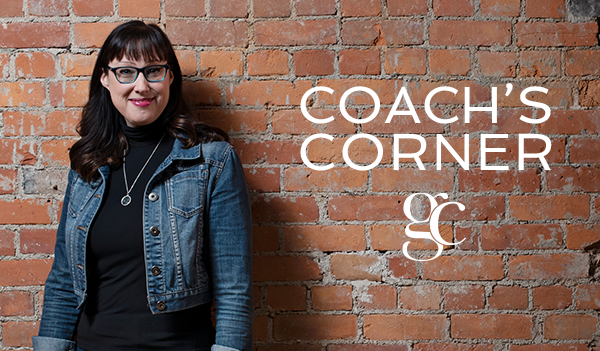
Hi Michelle,
I’m on the interview team at my company. I’m also circulating my own resume.
How can I be more confident in both scenarios?
Interviewing allows us to take stock of what we have going for us as a candidate or as a company as we decide what matters and try to talk about it intelligently and honestly. You can find “Interviewing 101” tips with minimal research, so here’s a deeper dive:
If You Seek a New Employer
Interviewing is like dating. You spend time with the potential employer, sharing about yourself and asking about them. You imagine a (work) life together. They might propose a partnership. It’s a dance, a negotiation, and it goes more smoothly if you:
- Know what you do and don’t have to offer. Speak proudly about achievements. Speak openly about where you can grow and state your plan to do so. As a former HR Director, I heard “I work too hard” and other cliché answers to questions about weaknesses often. I asked a rephrased question until I got a real answer. Don’t play games, but do present yourself in your best light.
- Research the company you’re meeting, then work what you learn into the conversation. Nervous? It’s just structured networking. This person could be next to you on a plane or in a waiting room. Get to know one another.
- Studies show that the interviewer’s impression of you crystallizes after 4 minutes.
From what you wear to handshakes and eye contact, project strength from the get-go. - If you don’t win the offer, briefly contact the interviewer to ask how you could have been a better candidate. I’ve interviewed over 500 candidates, and only 5 of them had the guts to do this.
If You Seek a New Employee
- 50 years of research shows interviews are not extremely valid at predicting success. Humans still cling to a preference to meet in person, which introduces bias. Avoid the Law of Social Similarity (hiring people who remind us of us), Halo/Horns Effect (hearing one answer so loudly we can’t hear the rest), stereotyping (candidate doesn’t “look” like a fit), order of interviews (tired after the 4th, so the 5th candidate doesn’t get a fair shake), and inconsistent questioning (no interview outline).
- Remember why you came to work for the company and where it shines. You see the warts as an insider, but an interview includes recruiting if you want the best hires.
- The Wall St. Journal reported a study in which 33% of resumes included shifted employment dates and 24% of resumes contained fictitious employers or education. You can’t afford not to conduct reference checks. Have candidates sign a release for references. My favorite reference question is, “What would be an ideal job for this person and why?”
- Use open-ended interview questions. “Do you have service experience?” becomes “Where did you serve customers, and for how long? What did you enjoy most/least?” I ask candidates to rate their level of interest in the job from 1 to 10, 1 meaning “it’s not for me” and 10 meaning “I’d start today if I could”. Eye-opening!
Interviewing is an art and a science. Most people engaged in the process would benefit from
training to make it more worthwhile. I hope these tips give you a leg up. Good luck!
👍🏼Like it? SHARE IT! Follow this link for a free, printable article.